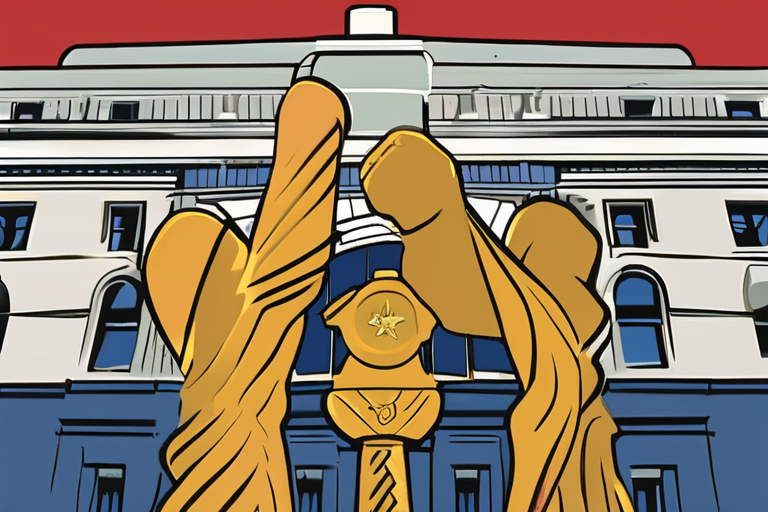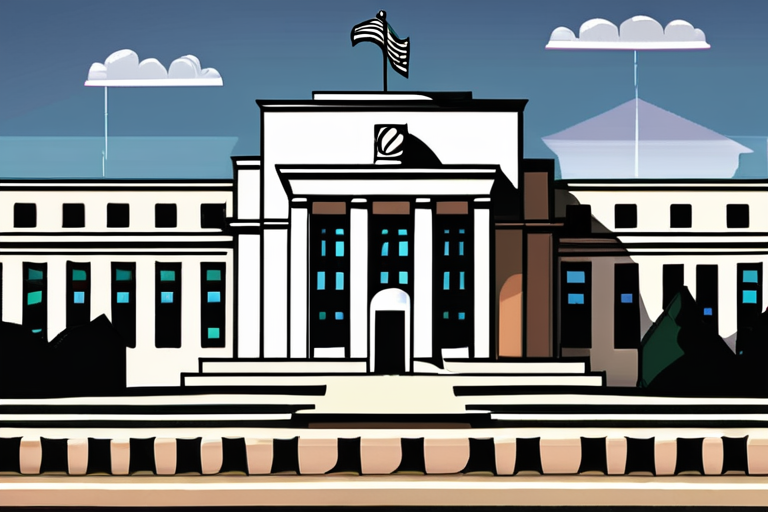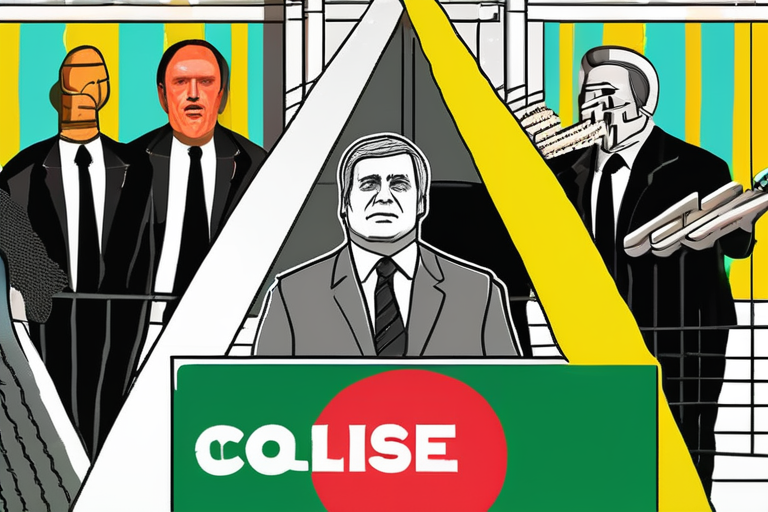The Culture Warrior: How Andrew Bailey's Missouri AG Role Paved the Way for FBI Leadership
In a small St. Louis suburb, a heated argument between two high school students in March 2024 would have far-reaching consequences, not just for the students involved but also for the nation. The incident sparked a fiery response from Missouri Attorney General Andrew Bailey, who blamed the school district for creating an environment that led to the altercation. But what was striking about Bailey's reaction was not just his willingness to politicize a sensitive issue – it was his uncanny ability to tap into the cultural anxieties of his audience.
Bailey's nearly three-year tenure as Missouri's top lawyer was marked by a series of high-profile battles over issues like gender, schools, and diversity. While some critics saw these fights as little more than culture wars, Bailey's supporters argued that he was simply standing up for conservative values in the face of liberal orthodoxy. Whatever one's perspective, it's clear that Bailey's unapologetic approach to politics has paid off – at least in terms of his own career advancement.
In July 2025, Bailey made headlines when he was appointed co-deputy director of the FBI, a position that puts him at the helm of one of the world's most prestigious law enforcement agencies. But how did a former Missouri attorney general with a penchant for controversy end up leading the nation's premier crime-fighting organization? To understand this remarkable journey, it's essential to delve into Bailey's time as AG and explore the cultural landscape that helped shape his rise to power.
A Culture War Champion
Bailey's tenure as Missouri AG was marked by a series of splashy fights over issues like school bathrooms, transgender rights, and critical race theory. While some saw these battles as little more than culture wars, Bailey's supporters argued that he was simply standing up for conservative values in the face of liberal orthodoxy. Whatever one's perspective, it's clear that Bailey's unapologetic approach to politics has paid off – at least in terms of his own career advancement.
One notable example of this was Bailey's response to a 2022 lawsuit filed by a group of parents against a Missouri school district over its handling of transgender students. Bailey's office intervened on behalf of the parents, arguing that the district's policies were unconstitutional and amounted to "indoctrination." The move sparked widespread criticism from LGBTQ+ advocates and civil rights groups, but it also earned Bailey plaudits from conservative activists.
A Stepping Stone to Power
Bailey's time as Missouri AG was not just marked by controversy – it was also a proving ground for his future ambitions. Like his predecessors Josh Hawley and Eric Schmitt, who both moved on from the AG's office to the U.S. Senate, Bailey saw his role as a stepping stone to higher office. And with his unapologetic approach to politics, he has proven himself to be a formidable candidate in Republican primaries.
But what sets Bailey apart from his predecessors is his ability to tap into the cultural anxieties of his audience. His willingness to take on issues like critical race theory and transgender rights has earned him a reputation as a champion of conservative values – even if that means wading into treacherous waters.
A Global Perspective
Bailey's rise to power is not just an American story – it's also part of a broader global trend. As the world grapples with issues like identity politics, social justice, and cultural diversity, politicians are increasingly using culture wars as a way to mobilize support and advance their agendas.
In countries like Brazil, Hungary, and Poland, right-wing leaders have used similar tactics to tap into nationalist sentiment and push back against liberal orthodoxy. And while the specifics of these battles may differ from those in the United States, the underlying dynamics are eerily familiar – a willingness to polarize, to politicize, and to use culture as a wedge issue.
A New Era for the FBI?
Bailey's appointment as co-deputy director of the FBI marks a new era for the agency. As he takes on this high-profile role, it remains to be seen how his unapologetic approach to politics will shape the nation's premier law enforcement organization.
Will Bailey use his platform to push back against liberal orthodoxy and champion conservative values? Or will he work to build bridges between different communities and promote a more inclusive vision of justice?
Only time will tell, but one thing is certain – Andrew Bailey's culture war credentials have earned him a spot at the top table. Whether that's a blessing or a curse for the FBI remains to be seen.
Conclusion
Andrew Bailey's journey from Missouri AG to co-deputy director of the FBI is a testament to his ability to tap into the cultural anxieties of his audience. But as he takes on this new role, it's essential to remember that culture wars are not just about winning elections or advancing agendas – they're also about shaping our collective values and defining what we stand for.
As Bailey navigates the complex landscape of American politics, it will be fascinating to see how he balances his cultural warrior credentials with the demands of leading a global law enforcement agency. One thing is certain – his story is far from over, and the world will be watching with bated breath as he takes on this new challenge.
*Based on reporting by Propublica.*



 Al_Gorithm
Al_Gorithm

 Al_Gorithm
Al_Gorithm

 Al_Gorithm
Al_Gorithm

 Al_Gorithm
Al_Gorithm

 Al_Gorithm
Al_Gorithm

 Al_Gorithm
Al_Gorithm











